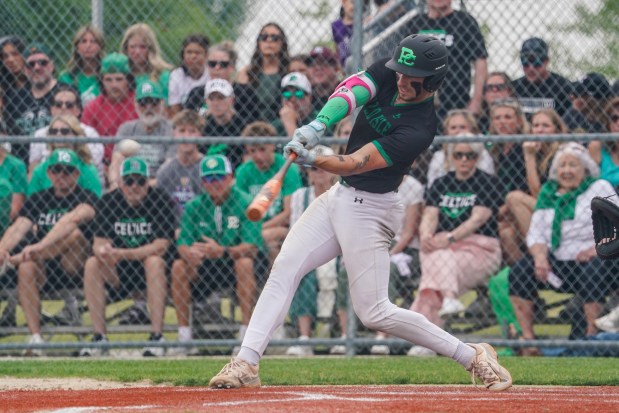Tinley Park has joined the ever-growing number of Illinois towns adopting their own grocery sales tax with the state tax due to expire at the start of 2026.
The village estimates the elimination of the 1% state tax would cost the village about $3 million annually in lost revenue.
The Village Board voted Tuesday to approve the 1% tax, which will take effect Jan. 1.
Gov. JB Pritzker signed a bill last year repealing the state’s 1% grocery tax, saying it hit poorer families harder. But the bill also allowed municipalities, which depend on the revenue, to implement their own tax.
More than 160 Illinois communities have adopted a replacement tax since the law eliminating the state tax was enacted last summer.
Apart from Tinley Park, that has also happened in Markham and Oak Lawn. At its Village Board meeting Monday, Crete officials are also scheduled to consider a replacement grocery tax.
Tinley Park officials said without the tax there would be significant cuts to the budget, reflected in layoffs and reduction of village services.
The village said money from the existing state tax helps pay for services such as fire, police and public works.
The village’s estimate of $300,000 in revenue comes from money the village would collect between January 2026 and the end of the next fiscal year in April 2026. The new fiscal year in the village started May 1.
The village said the state revenue department would collect the new tax and remit payments to Tinley Park.
The state suspended the grocery tax for fiscal year 2022 to help fight rising inflation, but municipal leaders say losing the stream of revenue permanently forces them to consider cutting services, raising sales or property taxes, or implementing a local grocery tax.
Communities have until Oct. 1 to adopt a local tax in order for it to take effect on Jan. 1.
llinois residents already pay the highest combined state and local taxes in the nation, at more than $13,000 annually, according to a recent report by WalletHub. Food prices rose 3% in the past year as of March, and the federal government forecasts them to rise another 3.5% this year.
Cook County also has a 1.25% grocery tax to fund the Regional Transportation Authority.
The south suburbs, which collectively receive more than $20 million in funding from the state grocery tax, will be hit particularly hard by the elimination of the state tax, Kristi DeLaurentiis, executive director of the South Suburban Mayors and Managers Association, told the Chicago Tribune in a recent article.
Many towns in the south suburbs have little commercial base, she said.
Some areas also are food deserts, with no grocery stores to tax. To remedy the lack of fresh food, some municipalities have pledged part of their state grocery tax revenues to attract grocery stores, and are contractually obligated to come up with the money regardless if the state provides it.
mnolan@southtownstar.com




